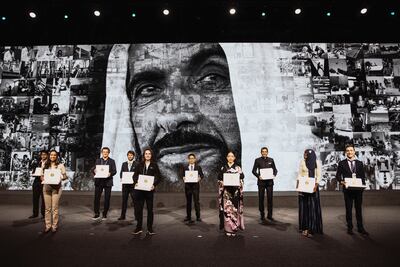In many ways, humanity has been making tremendous progress over the past decade; people are richer, healthier, living longer, and are more connected and educated. Yet despite this progress, today, there are more refugees in the world than ever before.
At the end of 2020, there were over 26.4 million refugees in the world, according to the UN High Commissioner for Refugees, or about 1 per cent of the world’s population.
Refugees are people who have been forced to flee their countries because of conflict, violence, persecution, human rights violations or climate change.
A confluence of factors, including the Covid-19 pandemic, the war in Ukraine, and the acceleration of global climate change, have worsened the refugee crisis in the past two years.
The close link between climate change and rising numbers of displaced people is undeniable. A warming planet increases the risk of natural disasters that force people to flee and can create resource shortages that could spark tensions and even conflict, leading to more displacement.
Refugee camps are created by governments or organisations as temporary accommodations for refugees, designed to provide them with immediate aid and protection. Although they are intended to be temporary, the average time a refugee spends in a refugee camp has risen to more than 20 years.
Sometimes these camps become thriving communities, but most of the time, they become overcrowded spaces where refugees often live in a constant state of fear or insecurity.
Currently, more than 90 per cent of refugees living in camps have little or no access to electricity. Lack of power poses a challenge for cooking, keeping warm or studying, while women and girls especially face far greater safety risks in camps shrouded in darkness.
Electriciens Sans Frontieres is a France-based non-profit organisation solving electrification issues in emergency situations. We have been fighting since 1986 against the inequalities of access to electricity and water in the world.
Displaced people are among the world’s most vulnerable populations. Thus, they are the most critical group to support to achieve the UN Sustainable Development Goal, “Ensure access to affordable, reliable, sustainable and modern energy for all”.
This year’s theme for World Refugee Day – an international day that celebrates the strength and courage of refugees every June 20 – is: “Whoever. Wherever. Whenever. Everyone has the right to seek safety.”
Lack of lighting can have dangerous consequences, especially for women and children. We believe that providing refugee camps with reliable and clean electricity is one of the most important ways to improve refugees’ safety and overall well-being.
Bringing electricity to refugee camps is not only helpful to the people living within the camps but is also good for the planet. Living without power usually means more pollution and greenhouse gas emissions, since people resort to burning firewood or charcoal to meet their household needs. And refugee camps may also use polluting diesel-powered generators to keep the lights on.
To satisfy refugees’ energy needs while fighting against climate change, the use of renewable energies is crucial. Therefore, the projects carried out by Electriciens Sans Frontieres are focused on using the energy provided by the sun or by waterways and innovative public lighting solutions to enhance safety and energy security in the camps. We have been involved in the electrification of refugee camps in Somalia, Jordan, Bangladesh, the Dominican Republic, and in many other parts of the world.
We have a network of more than 1,200 volunteers and partner with local actors to promote economic and human development through renewable energies. We co-ordinate activities with national governments and other aid organisations to achieve the best outcomes for people affected by crises by putting forward solutions designed to assess and bolster the camps’ energy infrastructure with photovoltaics or other appropriate, low-carbon technologies.

Our humanitarian efforts were recently rewarded by the Zayed Sustainability Prize, a global award that recognises excellence in sustainability. We won the 2020 prize in the energy category. This recognition has helped us further amplify our mission to provide the poorest communities with access to reliable and affordable clean energy.
Every year, the Zayed Sustainability Prize awards organisations that have deployed innovative solutions that improve communities’ access to energy, food, water and health care. The funding from the prize helps organisations such as ours scale their impact to reach a wider group of people in need.
Winning the prize also gave us the opportunity to work with Beyond2020, a humanitarian initiative launched by the prize in partnership with leading organisations, to deploy clean solar lighting solutions in a refugee camp in Bangladesh.
Through the "Light for the Rohingyas" project, we improved the living conditions of more than 8,000 Rohingyas who live in the refugee camps in Bangladesh. Providing sustainable and reliable power to refugees is an incredibly ambitious, but achievable goal. We believe the solution lies in achieving greater solidarity in addressing the energy needs of the displaced.
Through dedicated partnerships with organisations such as the Zayed Sustainability Prize, Electriciens Sans Frontieres can work effectively to meet the energy and safety needs of refugee populations around the world, supporting global efforts to close the energy gap while preserving the planet and its people.


